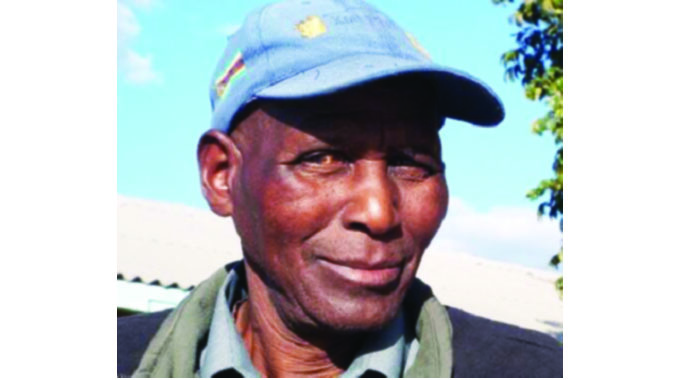WHO commends Zim for building resilient health systems

Mukudzei Chingwere in Victoria Falls
The World Health Organisation (WHO) has lauded Zimbabwe for building resilient health systems towards Universal Health Coverage on the occasion of the launch of the National Surgical, Obstetric and Anaesthesia Strategy (NSOAS) 2022-2025 here.
The commendation came yesterday when Vice President and Minister of Health and Child Care Dr Constantino Chiwenga officially launched the country’s blueprint that will be the guiding principle towards providing quality and affordable surgical care.
The launch means Zimbabwe became only the ninth country in Africa and fifth in Southern Africa to have a plan on providing accessible, timely and quality surgical, obstetric, and anaesthesia services to all Zimbabweans and those residing in the country in line with President Mnangagwa’s vision of leaving no one and no place behind.
Speaking at the launch, VP Chiwenga said the Covid-19 pandemic was a wake-up call that proved the need to erect strong health systems to confront calamities of such magnitude if they arise.
“The unprecedented Covid-19 pandemic in Zimbabwe and globally, has shown the need for building resilient health systems that are well equipped to respond to emergencies, but also sustaining essential health services,” said VP Chiwenga.
“Implementation of the NHS (National Health Strategy) 2021-2025 will be supported by various programme specific strategic documents such as the one we are launching here today.
“The National Surgical Obstetric and Anaesthesia Strategy (NSOAS) has been developed at an opportune time when the Ministry of Health and Child Care has undergone a restructuring exercise to enhance efficiency in the health sector. The NSOAS is coming in to address the burden of disease amenable to surgical care and it is the first of its kind.”
According to global annual reports in 2020, between 28 percent and 32 percent of the burden of disease in low and middle income countries was attributable to diseases that were amenable to surgical care, and VP Chiwenga said this was unacceptably too high.
“This has resulted in countries including those in the Sub-Saharan region developing National Surgical, Obstetric and Anaesthesia Plans (NSOAPs) to address the burden of disease amenable to surgical care,” he said.
“Zimbabwe has today become one of the few countries in Africa to have a comprehensive strategy for surgical services. I congratulate you (health workers) for your usual resilience and leadership in health.”
VP Chiwenga said by launching the strategy, Zimbabwe was showing commitment and taking a positive step in meeting international obligations, imploring stakeholders to translate the strategic document into action.
He urged health development partners and the private sector to rally behind and complement the Government’s efforts in addressing morbidity and mortality amenable to surgical care as guided by the strategic document.
“Let me reiterate my unwavering support towards implementation of this strategy,” said VP Chiwenga. “We cannot continue to witness huge numbers of our people crossing the borders seeking these services.
“I believe that Zimbabwe, with the excellent professionals like you (health care workers in attendance), can be a regional and international destination for medical tourism.”
VP Chiwenga said the strategic document was going to ensure that all people in need of Surgical Obstetrics and Anaesthesia (SOA) services received quality and timely care at all levels of the healthcare system, as well as increase the number of and retain trained Surgical Obstetrics and Anaesthesia (SOA) providers ensuring numerical adequacy at all levels of health care in Zimbabwe.
He said it will expand equitable access to improved SOA service and care infrastructure that was appropriately equipped and systematically collect, process, and utilize quality SOA data in a timely manner to inform decision making, as well as ensure sustainable funding for Surgical, Obstetric, and Anaesthesia Care.
VP Chiwenga said the strategy will also improve leadership and governance of surgical, obstetric and anaesthesia service delivery at all levels.
WHO country representative Dr Alex Gasasira, who was represented by Dr Thenjiwe Sisimayi, said Zimbabwe was the fifth country in the SADC region to develop and launch the strategy and ninth on the continent.
“I would like to congratulate and commend the Government and people of Zimbabwe for this milestone and strategic public health system strengthening achievement. This is yet another manifestation of Zimbabwe’s leadership in building resilient health systems towards Universal Health Coverage,” said the WHO representative.
“We appreciate the Government and development partners for the technical and financial contribution to this strategy.
“This National Surgical, Obstetric and Anaesthesia Strategy will strengthen health system security in Zimbabwe by guiding investments towards provision and improving the capacity to deliver surgical care at the district hospital level as a means to attaining Universal Health Coverage, Equitable Access and Quality.”











Comments